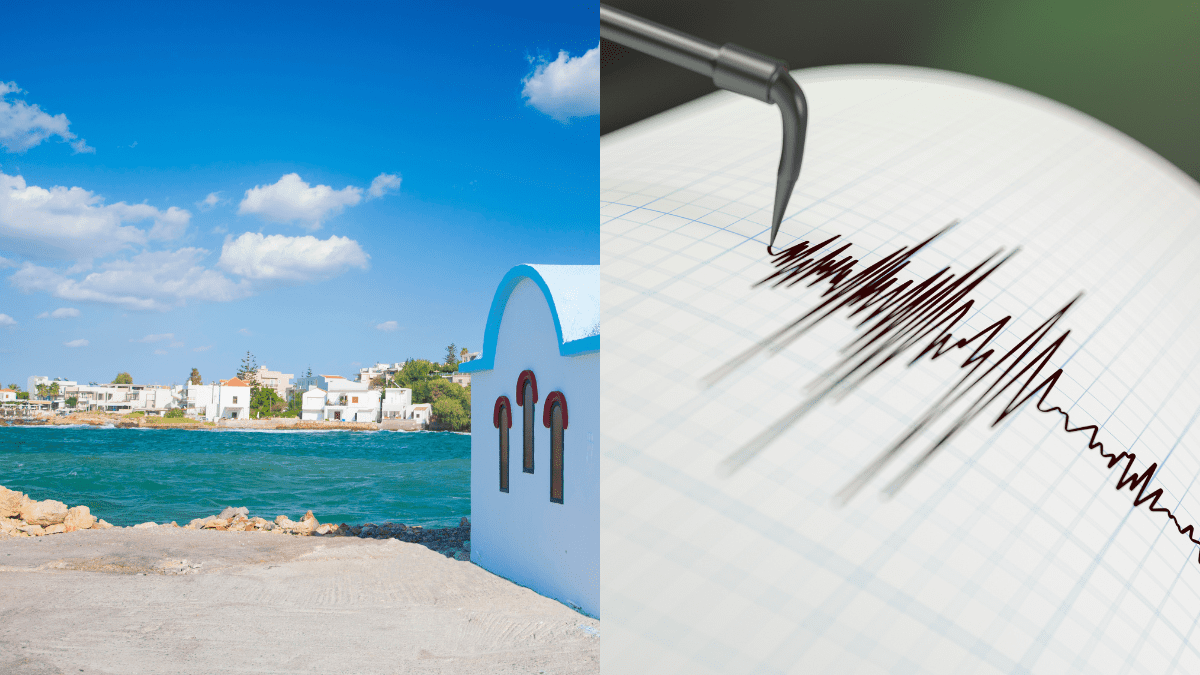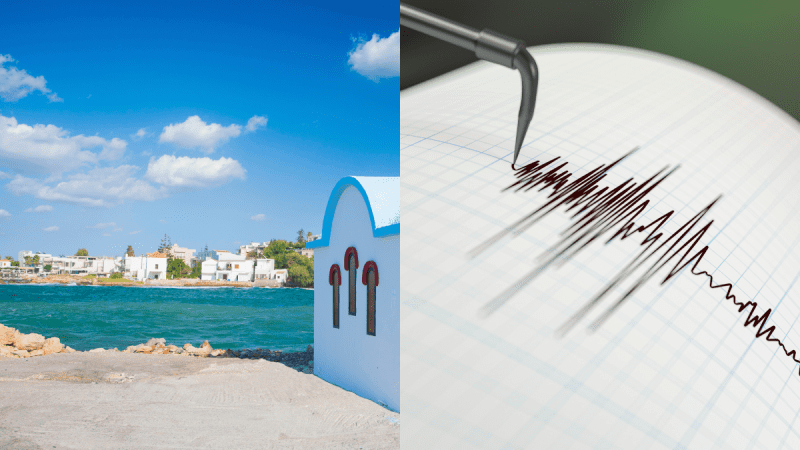A strong earthquake in Crete struck early Tuesday morning, with tremors felt across multiple countries in the Eastern Mediterranean. The quake measured 6.3 in magnitude and originated near the Greek island of Kasos. According to the German Research Centre for Geosciences (GFZ), it occurred at a depth of 10 kilometres. Egypt, Turkey, Israel, and Lebanon reported feeling the quake for several seconds. Emergency teams in Greece stayed on high alert, but no casualties or major damage were confirmed at the time of reporting.
Tremors Spotted Across The Eastern Mediterranean
Prelim M6.2 earthquake hits the eastern Mediterranean near Crete 👀 pic.twitter.com/3JldD6BRYO
— Volcaholic 🌋 (@volcaholic1) May 13, 2025
The earthquake in Crete affected a wide area, rattling cities far from the epicentre. As reported by India Today, residents in Cairo, Tel Aviv, and parts of southern Turkey noticed the tremors. Greece’s southern islands, including Crete, Kasos, and Karpathos, experienced the strongest shaking.
Also Read: 6.9-Magnitude Earthquake Strikes Papua New Guinea Coast; Triggers Tsunami Warning
The quake created short-term panic, especially in coastal zones. However, no tsunami warning was issued. The tremors disrupted daily activities, but transport and communication lines remained operational.
Greek Authorities Launch Immediate Response
Greek emergency teams responded within minutes of the earthquake in Crete. Local fire brigades checked key infrastructure and coastal buildings. As reported by The Times of India, officials inspected public facilities and schools across affected islands.
Also Read: 4.3 Magnitude Earthquake Jolts Kachchh In Gujarat; CCTV Footage Shows Tremors Impact
Crews found no major structural damage. Schools were briefly evacuated as a safety step. Local leaders encouraged calm but continued monitoring the area for aftershocks.
The quake served as a test for Greece’s rapid response units. Helicopters and marine patrols surveyed remote parts of Crete and Kasos.
Region’s Seismic Activity Raises Concerns
The earthquake in Crete followed a series of minor tremors in the region. Greece is located in one of Europe’s most active seismic zones. Seismologists advised people to stay prepared for possible aftershocks in the coming days. Citizens received alerts on how to stay safe during seismic events.
Greece frequently experiences quakes due to the movement of the Eurasian and African tectonic plates. The government continues to update building codes and safety drills
Cover Image Courtesy: Canva Pro





